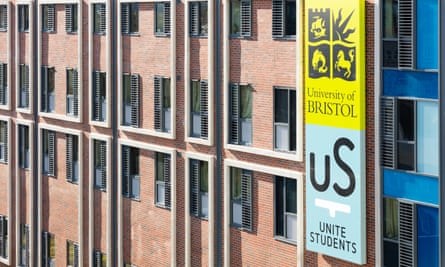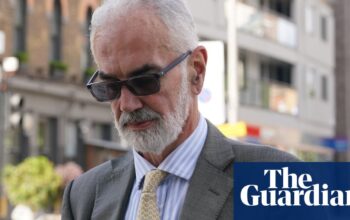The University of Bristol has chosen not to rename its buildings that honor individuals connected to the transatlantic slave trade. Instead, it has committed to providing £10m towards addressing racial disparities in the next ten years.
After a year of discussion, focusing on the potential renaming of seven university buildings, the university recognized that not everyone would be satisfied with the choice to keep the controversial connections.
The university promised to share its history with honesty, openness, and transparency. It also pledged to take meaningful steps to address larger problems of racism and inequality in Bristol and beyond.
The University of Bristol has decided to remove the dolphin symbol of Edward Colston, a slave trader, from their logo. This logo was created in 2003. In June 2020, Colston’s statue in the city was taken down during a protest for Black Lives Matter.
The university stated that it did not receive any financial support from Colston, who passed away almost two centuries prior to its establishment. However, the Wills and Fry families, who had connections to slavery, did contribute significant funding in the early 20th century, which aided in the university’s establishment.
The university states that the families were not involved in the ownership or transportation of enslaved individuals. However, the goods that their ancestors traded, such as tobacco, sugar, and cocoa, were undoubtedly linked to the use of enslaved labor. The Wills Memorial Building, which is considered a significant symbol of Bristol by the university, has been a target of student demonstrations in recent times.

The university announced that the sum of £10m will go towards supporting a program called “reparative futures” which aims to confront racial injustice and disparities in both the university and surrounding communities. This initiative will also expand upon previous efforts, such as the Black Bristol Scholarships Programme. Additionally, the university has committed to establishing a community fund that will provide resources for local organizations to implement projects aimed at addressing educational, health, and economic inequalities.
Prof Evelyn Welch, the vice-chancellor and president, stated that the university’s consultation resulted in 4,000 contributions from students, staff, and members of the local community. These contributions revealed a strong sense of pain and dissatisfaction with the university’s slow efforts and dedication to achieving racial equity.
Welch stated, “I express sincere regret for the harmful and hurtful situations that are still ongoing. I extend my apologies to all those affected by these injustices. Our goal is to be an all-encompassing organization and we must strive for improvement.”
I am aware that not all of these choices will be satisfactory for everyone, but we have taken all feedback into consideration. It is crucial to tell our story truthfully and openly, while also actively working towards addressing the larger problems of racism and inequality in Bristol and beyond.
The university’s students’ union’s equality, liberation, and access officer, Saranya Thambirajah, expressed discontent with the choice to not change the names of the buildings. “But the reality is that renaming, or not renaming, will never fully address the underlying issue. This has always been about a deeper problem,” she stated.
The university has not made the decision to change the name of a building, but addressing inequalities and challenges requires more than just focusing on names or any one aspect of the university.
Source: theguardian.com


